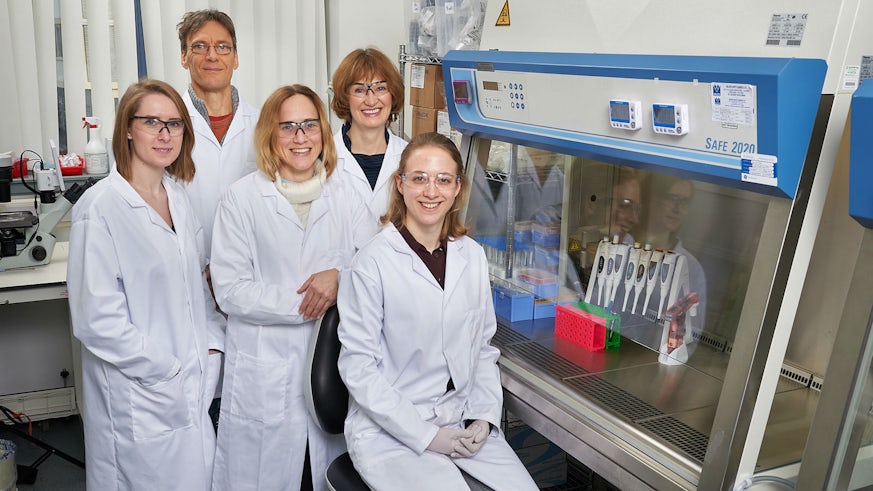Funding win for breast cancer research
17 September 2018

Cardiff University and biotech company Cellesce have won funding from Innovate UK in a bid to find new breast cancer therapies.
The company, based at Cardiff Medicentre, has pioneered the development of organoids – 3D clusters of cells that grow into minute versions of organs.
They display the three-dimensional characteristics and physiology of real organs, offering unique possibilities for medical research focused on drug discovery and personalised medicine.
The award will fund a collaborative project that aims to improve research into scaling up organoids to enable the discovery of new breast cancer therapies, and builds on the expertise the two teams have already established with colorectal cancer organoids.
By using organoids in drug discovery screening, scientists can identify active compounds for further progression earlier in the drug discovery process and weed out less attractive compounds before incurring higher downstream costs.
Professor Trevor Dale, Director of Technology in the School of Biosciences at Cardiff University, said: "One of the hurdles of identifying new and effective treatments is the accuracy of cell responses to the compounds you are testing, since cells in a petri dish frequently don't behave as they would in the body.
Dr Mark Treherne, Cellesce CEO, said: "Cellesce is already producing patient-derived colorectal organoids on a commercial scale for research use and screening in drug discovery.
"90% of early-stage compounds fail to demonstrate relevant clinical efficacy so extending the range of cancer tissues that we can provide at scale will enable more pharmaceutical companies to embrace organoid technology. We believe this will provide our customers with a more robust, relevant and cost-effective model for screening new drug compounds."
Founded in 2013, Cellesce is built on cell and organoid biology expertise from Cardiff University and biochemical and bioprocess engineering expertise from the University of Bath. The company focuses on the supply of standardised and well-characterised cancer organoids for large-scale applications such as compound screening, especially for high throughput screening requirements, where significant quantities of reproducible batches are required.
Share this story
The School has an international reputation for its teaching and research, and offers some of the top research-led bioscience curricula in the UK.



